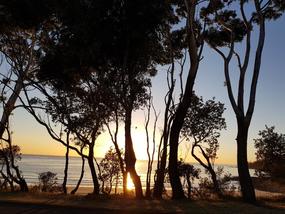
For the past two months we have been working on the 19th issue of Lifewde Magazine in which we explore the idea of mental time travel - connecting to our memories of the past. By coincidence I find myself writing a short article for the magazine and the fact I am here stimulates a particular stream of thoughts.
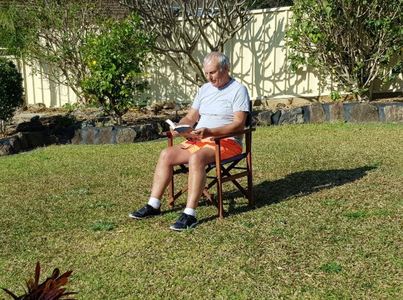
We are who we are because of our past and our present is influenced by all the things we have learnt and experienced and draw from in our present. Our experiences and associated memories are distributed across all the different parts of our lives – the lifewide dimension, and they accumulate throughout our life – the lifelong dimension. And assuming that our memory is not impaired, we can access our past anytime and anywhere. Our ability to connect to our past and the events and people in it, is one of the things that makes us human and the particular events and people we connect to in the different parts of our lives is what makes us the particular person we are.
What triggers a memory?
Memories can enter our consciousness in a spontaneous way but they are often triggered or stimulated by another thought. A conversation with friend might touch on something that we can relate to and lead us to share a memory of our own experience, or we might be out walking or jogging, or driving a car and our stream of thoughts might alight on a particular memory. A piece of music might remind us of something, or an item of clothing, a child’s toy or a photograph. Particular physical spaces can also stimulate memories particularly when we enter the same environment where an experience we had formed a memory.
It’s easy to appreciate the significance of this as I sit writing this short article on my mother’s veranda in Australia. The fact I am here reflects the fact that over 40 years ago my parents and siblings migrated to Australia and my life took a very differed direction to theirs. But I have visited them many times since then. The few weeks I spend here on the south coast of New South Wales is like a retreat and I find it an easy place to think about my past: particularly past events that happened in this space. For example, I have very vivid memories of sitting on the prickly couch grass with my wife in 1993. The adjacent photo shows the exact spot where this memory was formed. I remember we kept shifting our position to catch the late afternoon winter sun and avoid the shadows creeping towards us. I don’t remember what we talked about, probably it was about our holiday experiences and our kids, but I do remember feeling happy that I was with the person I loved. I know I paid attention to the moment as it happened because I took a photo of her which preserves an image but not the feelings. My photo is locked away in an album in my home thousands of miles away but my memory is here with me now to be re-experienced and enjoyed separately from all the other moments of my life.
A few years ago I read a wonderful essay by Jay Lemke in which he posed the question How do actions or events on one time scale come to add up to more than a series of isolated happenings? (1) I am illustrating one of the answers to this question. If we have a memory of a moment and we are able retrieve it, recognize its significance and meaning, and integrate it into our present thinking in a reflective way we are bringing that transient moment into the scale of a lifetime.
The very fact I can recall the moments I describe above enables me to connect me in my present to a life that was very different to the one I now live. As I look back I can give meanings to these moments that I could not give when they happened: six years after these particular moments my wife died of breast cancer. So memories like these have a special poignancy and are to be cherished. It is undoubtedly a coincidence that I am now in this space once again and I can connect so vividly to this moment of my life 24 years ago to illustrate the point I’m making that we can use our present to connect to the moments of our life that we remember. My sense of uniqueness is reinforced by the fact that I’m pretty sure that I am the only person who has ever lived to have had this experience and my memory of it. But perhaps we should also acknowledge that many experiences are co-created, as this one was, and each of the co-creators will have a different memory of the event. When one of them dies the other loses access to all their memories and this is one of the things we miss.
Ecology of connecting to the past
We can use the learning ecology framework we are developing and testing to explain the most important features of an ecology that purposely sets out to connect us to our past and to learn from it. Figure 1 provides a generalized interpretation and the narrative below illustrates how the framework might be customized.
Figure 1 An ecology for connecting us to our past life based on the learning ecology model I am developing (2)
My ecology for learning emerged over a couple of years. It began with conversations with my mother and father on a visit to Australia. I recorded these and later transcribed them. I could then see that their stories of their lives could form the chapter for a book. So the idea of a book was born and it provided a context and purpose for me to think about my own story and the story of my first wife and also to find out about our ancestors. Affordance for learning was in my own life. I created a process in which I used my relationships with family members to gather their stories, photos and documents – the artefacts of our lives. I also used ancestry.com to search databases like census, and births, marriage and death certificates. These were my main resources together with my own memories. I created a space to think and write. and the act of writing was a very important part of the process for organizing and connecting my thoughts and reflecting on the life I had lived. The book was the artefact of my process.
The most obvious connection of using our present to explore the past is with the way we use reflection to examine our practice in order to learn how we might improve it. Many practice fields encourage or demand self-critical reflection whereby individuals are expected to reflect on a particular situation or critical incident that did not go well, to identify the reasons for what happened, and then identify lessons to inform future practice. Clearly there are parallels with the accounts in this issue but generally individuals do not create their own ecologies for deep reflection on their past: usually they engage in a formal procedure that is often linked to appraisal. Locating the process of connecting our current self to a past experience in order to demonstrate that we have learnt something useful within an accountability framework, provides a very different context for learning and personal development to what we are discussing here.
Perhaps a more useful and relevant connection is with higher education’s responsibility to develop leaners who can sustain themselves throughout long complex learning lives. This is the lifelong/lifewide learning context of an institution’s educational mission and it is the context in which the personal narratives in this magazine were created.
Higher education seems only to be mostly concerned with short time spans like the length of a module. Personal Development Planning (PDP) has encouraged longer time spans for reflection on the past and also a wider focus on experiences from different aspects of life. This is perhaps the most relevant educational context for the sorts of things we are concerned with in this issue. When I look back at my own experience as a student, of course my academic studies were important – they provided the knowledge I needed to become a geologist. But the experiences that enabled me to become the sort of geologist I wanted to be were the ones I created for myself – independent fieldwork, independent project and working in a tin mine. These were the experiences that carried most meaning and value and these were the ones that I could draw lessons from in my future working life.
Encouraging learners to reflect on their life experiences (both academic and non-academic) and how they influence their beliefs, values and evolving identity, and facilitating and valuing this process, is an important way in which higher education can contribute to the development of learners who are resilient in the face of disruptions and setbacks, who can sustain themselves throughout the whole of their life.
Sources
1 Lemke J (2000) Across the scales of time, artefacts, activities and meanings in ecosocial systems. Mind Culture and Activity 7(4) 273-290 Available at: http://dantao.weebly.com/uploads/8/5/4/9/8549343/lemke2000.pdf
2 Jackson N J (2016) Exploring Learning Ecologies Chalk Mountain: Lulu
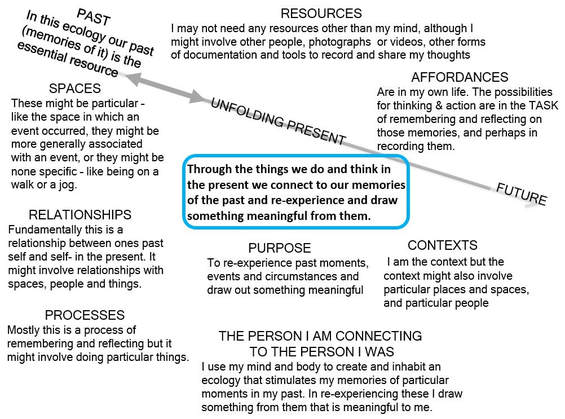
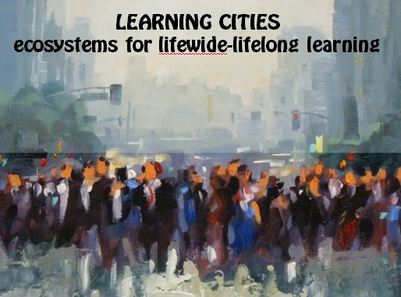
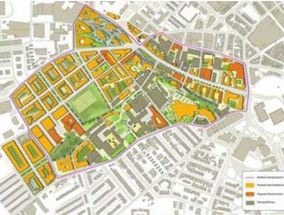
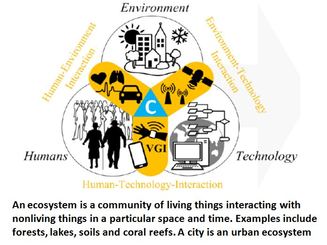




 RSS Feed
RSS Feed